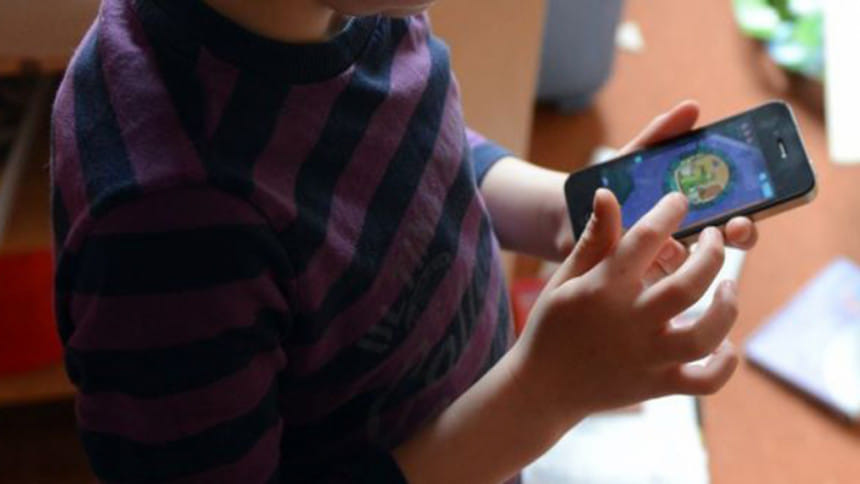Excessive computer use can lead to poor vision

Excessive use of smartphones, tablets or other types of computers in early childhood increases the risk of developing short-sightedness, eye-care professionals warn.
"Studies show that lifestyle is responsible for about half of all cases of short-sightedness," says ophthalmologist Dr Bettina Wabbels, who points out that evidence of a link between computer use and short-sightedness has so far come mainly from East Asian countries. "This wave is now headed towards us."
Children under three years of age who frequently stare at a computer screen close to their face can develop a slightly elongated eyeball, Wabbels explains.
"Once the eye has lengthened, it no longer shortens," she says. "The eyes' development is irreversible from about age 12."
When the eyeball is elongated, the lens focuses light from far objects slightly in front of the retina rather than directly on it. The result is short-sightedness.
Wabbels therefore recommends that four to six-year-olds spend no more than 30 minutes a day in front of a computer, and primary school children under age 10 no more than an hour.
Computer use by children can cause vision problems chiefly because the screen is close to their eyes. "A television set isn't as bad, since it's farther away," Wabbels says.
Short-sightedness isn't the only kind of eye trouble children risk with excessive screen time, she adds. Staring for long periods at a flat screen can impair their depth perception and ability to alternate between near and far vision, possibly leading to blurred vision and crossed eyes. It can also cause their eyes to become irritated, tired and dry.
What's more, the blue (short-wavelength) light from computer screens suppresses production of the sleep-inducing hormone melatonin, says ophthalmologist Dr Nicole Eter.
For this reason, children shouldn't use a computer for an hour or two before they go to bed – "and the same goes for adults, by the way," Wabbels says.
"Computers are like sweets," she remarks. "They're very enticing to children, but you've got to limit their use – the younger the child, the less screen time."
Be it a smartphone, tablet, laptop or desktop, it's not the size of the screen that matters, according to Wabbels. Instead of viewing a digital display of any kind, she says, it's definitely better for small children – and for their eyes' development – to play with building blocks and engage with the real world both indoors and out.
As the German Ophthalmological Society (DOG) notes, the prevalence of short-sightedness has increased sharply in industrialised countries in recent years. Some 95% of young adults are short-sighted in East Asia, where the impact figures being lower in European countries.
"The increase is primarily due to the early and intensive use of PCs, smartphones and tablets," says Eter.
Children nowadays generally spend less time outdoors than previous generations did, leaving their far vision relatively underdeveloped, the DOG says. Short-sightedness, it adds, not only often means having to wear eyeglasses or contact lenses for the rest of your life – it also increases the risk of things such as retinal disorders and glaucoma.
Copyright: The Star Online/ Asia News Network

 For all latest news, follow The Daily Star's Google News channel.
For all latest news, follow The Daily Star's Google News channel. 



Comments